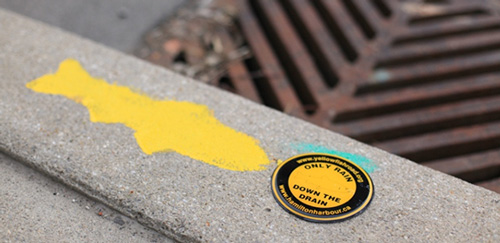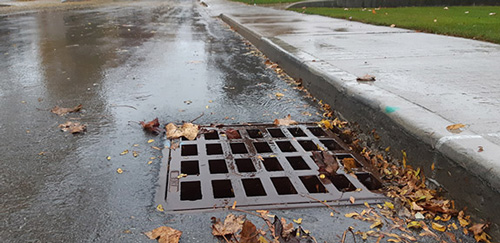Catch Basin & Street Drain Use

The Bay Area Restoration Council (BARC), in partnership with Trout Unlimited Canada, works with volunteers to mark storm drains with painted fish symbols and disks that carry the message “Only Rain Down the Drain”. They also deliver flyers to nearby mailboxes to spread the Yellow Fish Road™ message.
You can host your own Yellow Fish Road™ outdoor marking activity. Visit BARC for more information.

For more information
Call 905-546-2489 or
Email [email protected]
Report a spill to the City’s Spill Reporting Line
Call 905-540-5188
Report misuse of a catch basin
Be aware of activities in your neighbourhood. If you see someone placing litter, pet waste or dumping other pollutants into a catch basin, or if there are areas where this has occurred, call 905 546-2489. Provide as much information as you can, including:
make/model or license plate number of the vehicle
description of people
any other information you think would help in an investigation
Do not approach anyone you believe is responsible for misusing a catch basin. City staff are trained to deal with these situations and are responsible for the investigation.
In the event of a spill - a discharge of an abnormal quantity of a pollutant that occurs outside of the ordinary course of events – Call the City’s Spill Reporting Line at 905-540-5188. We will take your calls 24 hours a day, 7 days a week.
The law requires you to notify the City of a spill as soon as possible. City staff will respond and provide you with information on clean up, site restoration and how to prevent similar accidents.

